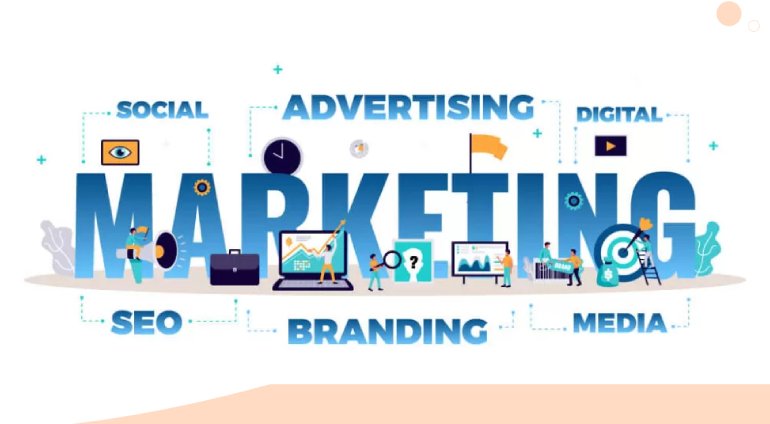Digital Marketing Services

Digital Marketing Services
Digital marketing services encompass a wide range of strategies and activities designed to promote products, services, or brands using digital channels. These services leverage the power of the internet, online platforms, and electronic devices to reach and engage target audiences. Here are key aspects of digital marketing services:
- Search Engine Optimization (SEO):
- SEO involves optimizing a website to improve its visibility on search engine results pages (SERPs). This includes on-page optimization, content creation, link building, and technical SEO to enhance a website’s ranking on search engines like Google.
- Search Engine Marketing (SEM) / Pay-Per-Click (PPC):
- SEM involves paid advertising on search engines. PPC advertising allows businesses to bid on keywords and display ads at the top or bottom of search results. Google Ads and Bing Ads are popular platforms for PPC campaigns.
- Social Media Marketing (SMM):
- SMM involves using social media platforms like Facebook, Instagram, Twitter, LinkedIn, and others to promote products or services. It includes content creation, community engagement, and paid advertising on social media.
- Content Marketing:
- Content marketing focuses on creating and distributing valuable, relevant, and consistent content to attract and retain a target audience. Content can include blog posts, articles, videos, infographics, and more.
- Email Marketing:
- Email marketing involves sending targeted messages to a group of people via email. It is used for promoting products, nurturing leads, and building relationships with customers. Email marketing platforms facilitate campaign management, automation, and analytics.
- Affiliate Marketing:
- Affiliate marketing is a performance-based strategy where businesses reward affiliates (publishers or influencers) for driving traffic or sales to their website through the affiliate’s marketing efforts.
- Influencer Marketing:
- Influencer marketing leverages the influence of individuals or entities with a significant following on social media or other online platforms. Brands collaborate with influencers to promote their products or services to the influencer’s audience.
- Digital Advertising:
- Digital advertising includes various forms of online advertising such as display ads, video ads, native ads, and more. Advertisers can use platforms like Google Display Network, social media platforms, and other advertising networks to reach their target audience.
- Analytics and Data Analysis:
- Analytics tools are used to track and analyze the performance of digital marketing campaigns. Metrics such as website traffic, conversion rates, click-through rates, and return on investment (ROI) help assess the effectiveness of marketing efforts.
- Mobile Marketing:
- Mobile marketing targets users on smartphones, tablets, and other mobile devices. It includes mobile advertising, mobile-optimized websites, and strategies to engage users through mobile apps.
- Conversion Rate Optimization (CRO):
- CRO focuses on improving the percentage of website visitors who take a desired action, such as making a purchase or filling out a form. It involves testing and optimizing elements on a website to enhance user experience and drive conversions.
- Web Analytics:
- Web analytics tools, such as Google Analytics, provide insights into website performance. This includes information about user behavior, traffic sources, and other key metrics that help marketers make data-driven decisions.
- Online Public Relations (PR):
- Online PR involves managing a brand’s online reputation, building relationships with online media outlets, and leveraging digital platforms to create positive brand awareness.
- Chatbots and Artificial Intelligence (AI):
- Chatbots and AI technologies are increasingly used in digital marketing to provide personalized customer interactions, automate responses, and enhance user experiences on websites and messaging platforms.
- Local SEO and Location-Based Marketing:
- For businesses with physical locations, local SEO strategies help improve visibility in local search results. Location-based marketing includes tactics to target audiences in specific geographic areas.